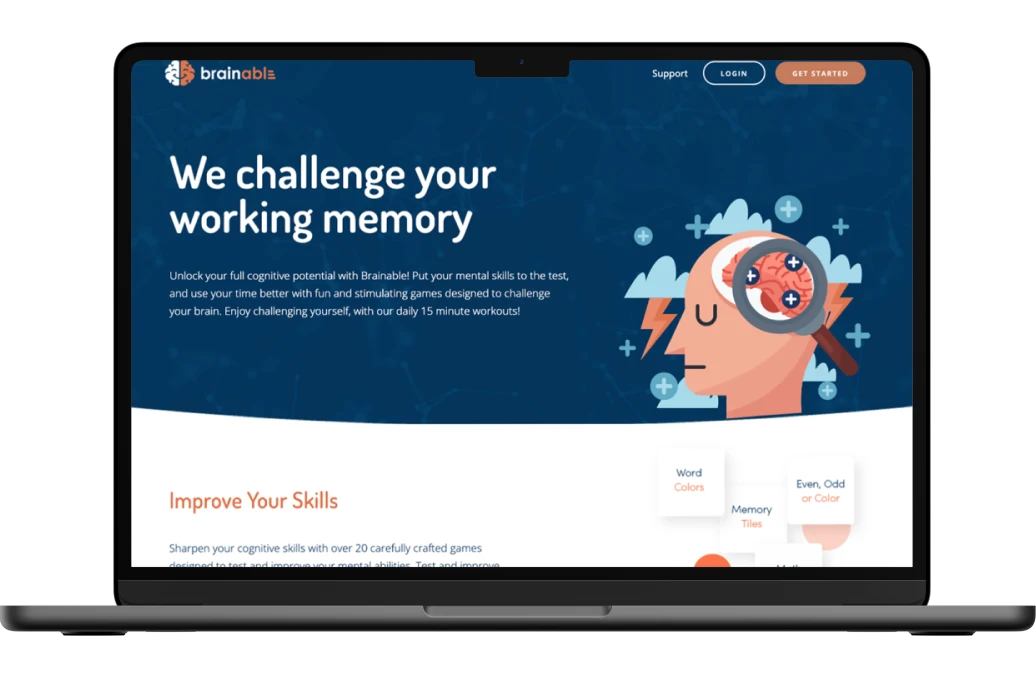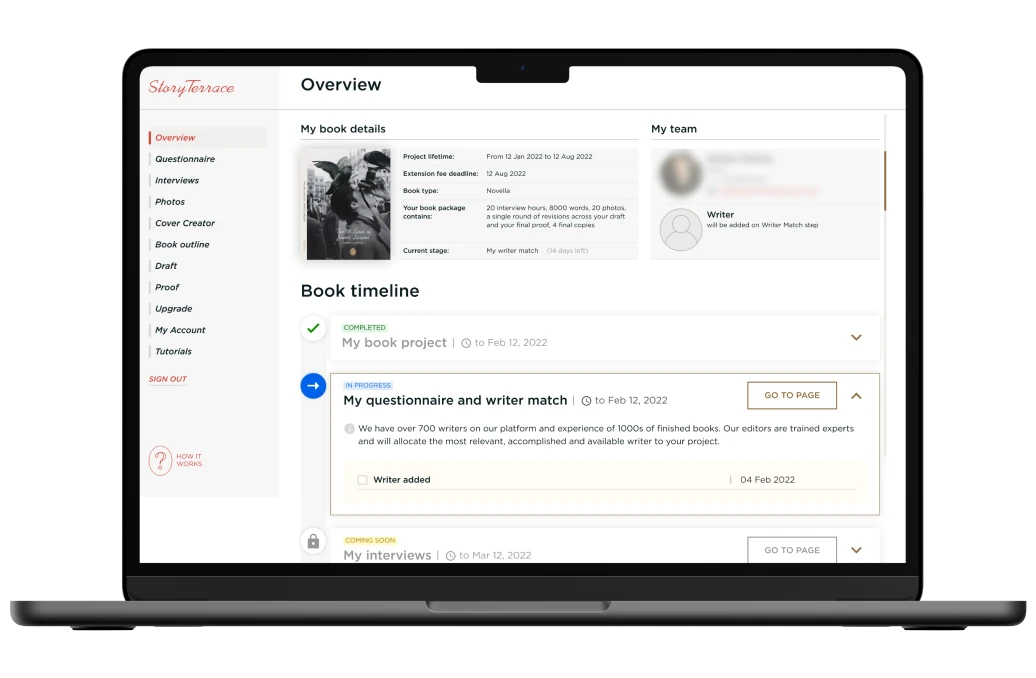Proptech is a major trend in the real estate sector these days. Learn more about it in this article!
The real estate sector is in constant need of automation. Proptech real estate software offers a solution to the presented challenge. How exactly does it solve it? Primarily through the addition of novel technologies such as AI to the property management and real estate sector. We believe that proptech has a game-changing influence on the real estate industry. This article will thoroughly review this influence and highlight innovations like Big Data in real estate that proptech can manifest for buyers and sellers.
What Does PropTech Stand For?
Proptech stands for the application of modern informational technologies in the property sector. There are many ways to model proptech real estate apps as of today.
For example, creating complex listing sites for commerical properties is possible. One more framework to consider is creating commerical real estate technology aimed at calculating various fees.
In short, a large variety of possible real estate projects can assist commercial real estate firms. PropTech is revolutionary because it helps optimize a tremendous number of diverging projects.
Proptech Landscape: Current Data

This sector proves to be a booming market that is currently growing at a genuinely fast pace. In this regard, Deloitte claims that proptech real estate firms are proliferating. Companies that deal with construction technologies and other factors in the sector are enjoying a very high level of growth.
There’s one more interesting fact: 60% of the firms in the proptech market are in the US these days. The country is known for its robust real estate sector. A significant deal of this success results from local firms’ investments in the real estate market.
More importantly, data analytics proves that the potential for the sector’s growth is tremendous. Today, it’s evident that most of the world hasn’t seen the proptech revolution yet. Statista claims that the real estate market’s value will reach 637 trillion dollars by the end of 2024. This means that the proptech sector will likely have a lot of space for the long-term expansion of its core markets.
Firstly, there is space for software that organizes the informational aspects of learning. Secondly, many companies have great opportunities for installing diverging devices and sensors that can enhance the visibility of information within the field. In short, we believe that the capabilities for the long-term growth of the real estate field are endless these days.
Types of Proptech
Proptech represents a wide variety of digital solutions. They encompass a genuinely large list of app types. In this review, we’ll look at those app types and describe their core groups:
1) Multiple listing services: the first type of proptech includes all forms of multiple listing services (MLS). These services provide detailed lists of various properties and their core characteristics, presented via digital solutions. In this regard, established real estate companies rely on proptech software for two main reasons. First, proptech solutions help sellers navigate the available properties more efficiently. Second, they enable customers to quickly find suitable properties. Today, property technology is especially vital as it leverages advanced tools like AI and Big Data, offering MLS users the ability to make better, data-driven decisions.
2) Financial technology for the real estate industry: additional examples of proptech that greatly benefit the sector undoubtedly include fintech investments. As mentioned earlier, the real estate sector involves significant sums of money. Therefore, secure and reliable services for calculating expenses and facilitating safe payments are essential. Fintech investments represent the future of proptech, as they play a key role in moving the industry forward by making transactions more transparent for users. In the past, many individuals were hesitant about mortgages due to the lack of information about this financial service. Now, automation can handle most calculations, maximizing positive outcomes for all parties involved.
3) Property monitoring software: Properties must be in excellent condition to be sold. The most rational approach is to invest in property technology that incorporates the Internet of Things (IoT). What kind of monitoring is possible with new technologies like IoT? Above all, the potential of proptech lies in safety and security. Sensors can ensure proper humidity levels and temperatures and are excellent for preventing incidents like fires or floods. Modern AI enables automatic monitoring of these factors, demonstrating that property management platforms can significantly reduce reliance on human labor. Thanks to proptech, properties today can achieve the highest levels of security.
Key Positives of Real Estate Proptech
Real-estate proptech has a tremendous number of positive long-term benefits, both for firms and for workers. Let’s look at them in depth:
Improved productivity
The first reason to consider investments in the proptech industry is the ability to raise productivity. Let’s imagine that real estate experts working for a particular company could communicate with 100 clients a day in the past. Automation tools like AI remove this limit for real estate firms. So, with an automation tool, real estate experts could work with 200 or more customers. For instance, some dialogues in the real estate industry can be automated because they involve many generic questions. Instead, the real estate investment can go to more valuable tasks, such as analyzing large-scale leads and their core goals.
Upgraded transparency
The real estate landscape is known for many non-transparent processes. For instance, many people deal with complex fees in this industry. In many cases, they can be surprising for the customers, leading to adverse outcomes for significant firms in the sector through, for example, lost deals. In this light, tools like AI and Big Data significantly improve transparency within the real estate market. How exactly do they achieve this? AI can assist with creating clear reports about particular innovations. Big Data has become essential for showcasing statistics about specific places, for example.
Better jobs
A traditional view of automation is that it leads to negative outcomes for the workers. According to this view, they lose their jobs due to the implementation of new machines. Our experience with the real estate sector indicates that this is far from being the case. Why exactly? The number of potential tasks in the field is tremendous. The inability to automate tedious everyday tasks prevents people from working with something more analytical. What is proptech industry in this respect? It’s an opportunity to transfer agents from tedious tasks, such as manual communication with every potential client, to more creative ones, like analyzing the conditions in the real estate tech.
Data-oriented decision-making
One more benefit of proptech is data-oriented decision-making. Property tech is notable for its ability to vastly increase the amount of data various firms receive. For example, AI analytical tools can find some high-quality data points that are unavailable to any other firm on the market. This unique synthesis of data points into something new and high-quality is what defines the core benefits of real estate technology. With modern tools, it’s now possible to make much better decisions about business than in the past.
Improved user experience
Technologies like generative AI or virtual reality can make the users’ experience more seamless. Firstly, there’s an opportunity to automate communication and even real estate transactions, significantly increasing the speed of service. Secondly, it’s now possible to showcase specific properties from the comfort of one’s home. With VR technologies, most buyers can review a house or apartment without visiting them personally. In this way, selecting the most appropriate residential and commercial properties becomes much easier because you can review multiple locations without visiting them yourself.
Improved marketing
Marketing can also greatly benefit from technologies like AI, VR, or contract automation. Why is this the case? The reasons are pretty simple. VR is notable for its ability to showcase properties without requiring a visit to a particular location. This is great for residential real estate, which often requires a very thorough search process. AI and contract automation are also great because they remove the feeling of pressure from the real estate sector. What do we mean by this? The technologies in question are notable for their ability to help with communication and, more importantly, with document management. In this way, tech solutions turn the tedious process of searching for a real estate property into a more manageable and easy one.
Key Proptech Technologies

Modern proptech features multiple key technologies that you need to take into consideration if you want to implement a technology-driven solution in your firm:
1. AI
The first and probably the most important technology in the real-estate sector is undoubtedly AI. Why is AI so vital for the sector? The reason is simple. AI changes the approach modern firms take concerning communication and analytics. On the one hand, generative AI can help modern real estate firms handle everyday communication better than in the past. For instance, it’s now possible to use technology solutions to help users with the initial stages of communication. On the other hand, AI can also help with the analytical tasks. It’s now possible to analyze much more information than in the past with the help of these technologies. In combination, this information means that many firms will now spend much less time doing tedious tasks and much more time doing more complex ones.
2. Virtual reality
Technology and real estate intersect at one more juncture. This juncture is Virtual Reality. In the past, a common practice for most firms on the market was to showcase properties manually. One had to go to a particular location and analyze them personally. This approach is suboptimal in many cases because it leads to buyers having to spend tremendous amounts of time searching for properties. Considering that many individuals capable of investing in real estate work in intense, high-paying jobs, this information means that the whole process is highly inconvenient for them. With VR, the problems can finally be removed once and for all. What is proptech doing in this regard? It offers users an opportunity to review properties without actually visiting them. This is highly vital because this approach saves tremendous amounts of time without leading to major sacrifices in the quality of the reviews.
3. Document automation software
Document automation software is another type of technology that greatly benefits modern real estate firms. Paperwork automation is notable for its ability to greatly reduce pressure on the average client. How exactly? What is proptech doing to assist clients? The document signing process is often tedious and can take weeks. With automation, this problem can finally be removed once and for all. Many preliminary stages in the process of working with documents can be automated, minimizing discomfort for the users. Tools like digital signatures are notable for their ability to sign multiple documents simultaneously and, more importantly, online. In this way, there’s no need to use offices: one can sign documents from the comfort of their home.
4. Lead generation frameworks
An investment into lead generation frameworks becomes essential if you want to achieve success. What do lead generation frameworks offer? Above all, they’re notable for their ability to analyze tremendous amounts of information and produce valuable insights about the most promising clients. In short, they greatly reduce the need to evaluate every market offer personally. Instead, the relevant apps highlight the most vital deals independently, reducing time spent on low-priority deals.
5. Multiple listing platforms
Lastly, significant investments in the real estate sector go into multiple listing platforms of all types. What are multiple listing platforms? These sites hold information about diverging properties available in a particular area. Every house or other property has core information about them attached to the individual profiles. Using such services, all stakeholders in the industry can significantly improve their experiences. How exactly? Customers can review multiple properties independently (especially if virtual reality is present). In turn, agents can also quickly find the most potent deals for their clients. Those services are notable for their ability to unite multiple technologies listed above (for instance, AI-centric communication) into a singular service.
Real Estate Technology Trends
There are multiple real estate technology trends these days. Let’s dive into them and review the core aspects of the modern markets:
1. AI and ML for back-office automation
Back offices are highly vital in modern real estate. They’re the brains of the core operations in the industry. In this light, AI and ML are so vital these days. These tools can automate many aspects of analytics done in back offices. For instance, they can automatically collect and synthesize data. Consequently, the sector’s interest in this technology is far from surprising: it is among the best ways to enhance product analytics.
2. Proptech Big Data for new insights
Big Data is another technology that is highly vital for proptech. Why exactly? Produced by a combination of AI and data collection tools, it allows one to create very advanced insights into the property markets. Big Data combines smaller data sets into new systems that enhance information analysis. Therefore, this combination is highly valuable because it can point toward new ways to do business.
3. Virtual Reality for improving the home-buying process
What is proptech? It is the application of existing technologies in the property markets. In this regard, virtual reality can be highlighted for its ability to make the home-buying process much more comfortable. How exactly? As mentioned before, users can utilize virtual reality to review certain properties without visiting them. In this way, it’s possible to minimize workloads for every stakeholder and, thus, improve the number of deals in the sector.
4. Internet of Things (IoT) for maintenance
IoT is one more technology likely to have a decisive impact on the real estate market. Why exactly? Modern real estate companies have to deal with a large number of properties. To sell them or lease them, they must ensure those properties are in perfect condition. IoT devices can trace various signals in those properties to guarantee maximal long-term safety for them.
5. ClimateTech and GreenTech for improving sustainability and preventing climate change
Developing apps and physical technologies that significantly reduce the negative environmental impacts is also possible. How exactly do they achieve this? Primarily by helping reduce inefficiencies. One can use apps and sensors that will indicate carbon dioxide emissions or showcase how to better use water. ClimateTech is the future of the property markets due to the rising impacts of climate change. It will allow humankind to achieve a higher level of sustainability and prevent the worst-case scenarios associated with climate change.
Top Trending Proptech Companies

Zillow
Zillow is an online real estate marketplace that aims to help users find home value estimates and browse for sale listings.
Opendoor
Opendoor is a technology-focused platform that helps homeowners sell their homes directly to the company. This provides an efficient way for homeowners to bypass traditional real estate channels and quickly turn their properties into liquid assets.
Compass
Compass is a real estate technology company with tools and services to help agents work more efficiently. The company has a platform where agents and staff can manage different aspects of the real estate process, including listing management and client communication.
Redfin
Redfin is an online real estate brokerage that uses technology to make the home buying & selling processes more efficient and transparent. The company’s real estate website and mobile app provide home searches, instant home valuations, and agent recommendations.
Airbnb
Airbnb is a website that connects travelers with hosts that offer short-term rentals, experiences, and other hospitality services. Its technology-forward model has shaken up the traditional hotel industry, and it’s now a well-established choice for travelers and property owners.
Proptech Software Development Portfolio with Keenethics
To summarize, the proptech market is among the most promising fields for business expansion these days. The demand for automation is rising daily, so investing in this sector is essential for success. In this light, many reasons for cooperating with our company exist. We have an extensive portfolio of proptech and fintech solutions. As a result, you can rely on Keenethics to create a full-scale solution for your business.
FAQs
What does proptech stand for?
Proptech stands for property management platforms that use modern informational technologies to maximize their positive long-term impacts. These technologies are highly diverse these days. They include multiple listing services or informational systems for various firms. In short, the variety of options on the market is genuinely tremendous.
What are some examples of proptech?
Some examples of proptech include services like Zillow and Airbnb. One service allows property owners to sell their properties. Another one helps them become landlords and earn money on rent. In short, the proptech industry is highly diverse these days. Keenethics also helped develop some proptech products. They involve property technology such as Ruuster and Offerin.
What product types exist in the proptech sector?
The proptech landscape involves many different app types. In this regard, it is possible to classify them according to the monetization models, their functions, or even innovations that have been used. In the case of innovations that have been used, AI is undoubtedly one of the most powerful technologies. Big Data and machine learning also play a significant role in many situations. As for the functions, property technology exists in the form of listing software, fintech apps, and monitoring frameworks. Proptech companies offer a genuinely vast number of possible solutions for their clients.
What role does proptech play?
Proptech industry plays a game-changing role in the modern software market. What is it capable of? Above all, it enhances the majority of the traditional processes in the property market. Proptech platforms allow for significant automation of various tasks in the industry. Therefore, proptech plays a substantial role in transforming the sector towards more complex jobs.
Will proptech represent the future of the real estate industry?
We believe that it will definitely represent the future of the real estate industry. Why is this the case? Automation is the general trend in the modern markets. Therefore, it’s reasonable to expect it will also affect the real estate market. More importantly, proptech is so essential for the future of real estate companies because it’s likely to improve their services. Automated services will likely boost sales through better property information and even smart buildings.
What are the key technology trends in modern proptech?
We can highlight multiple vital proptech trends in the modern world. Firstly, there’s an influx of Big Data technologies. More and more real estate developers are investing in technologies for tracking information. This approach allows them to offer better insights to the customers. Secondly, the proptech industry is widely adopting AI technologies to upgrade its current processes. In our opinion, these innovations are highly vital because they allow for the automation of many tedious analytical methods.
Develop your own proptech platform together with Keenethics!












